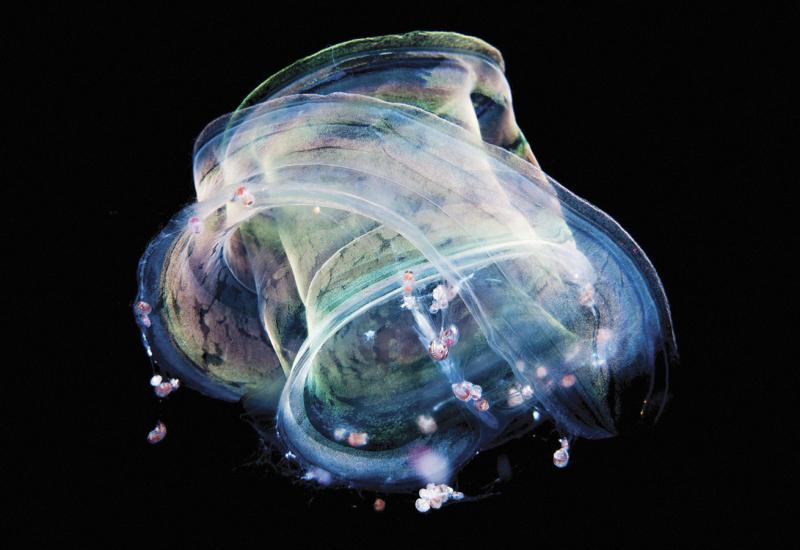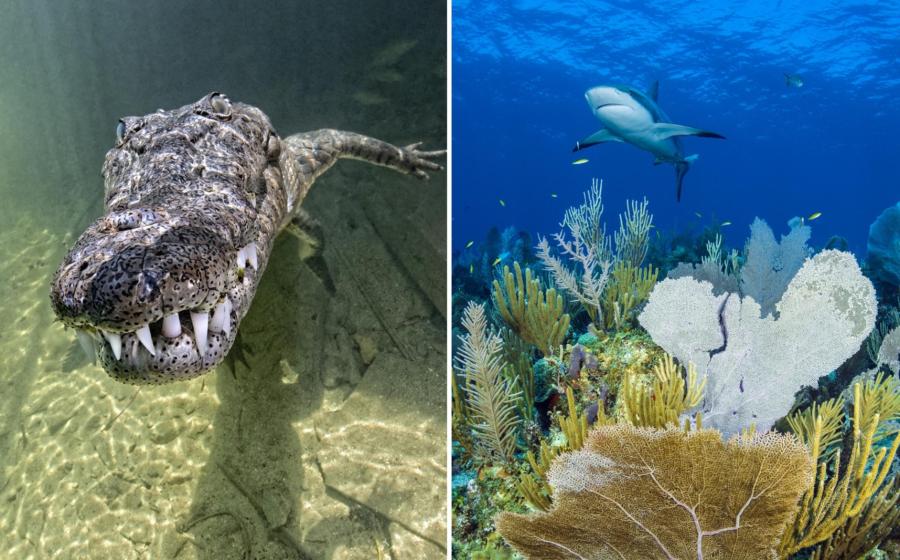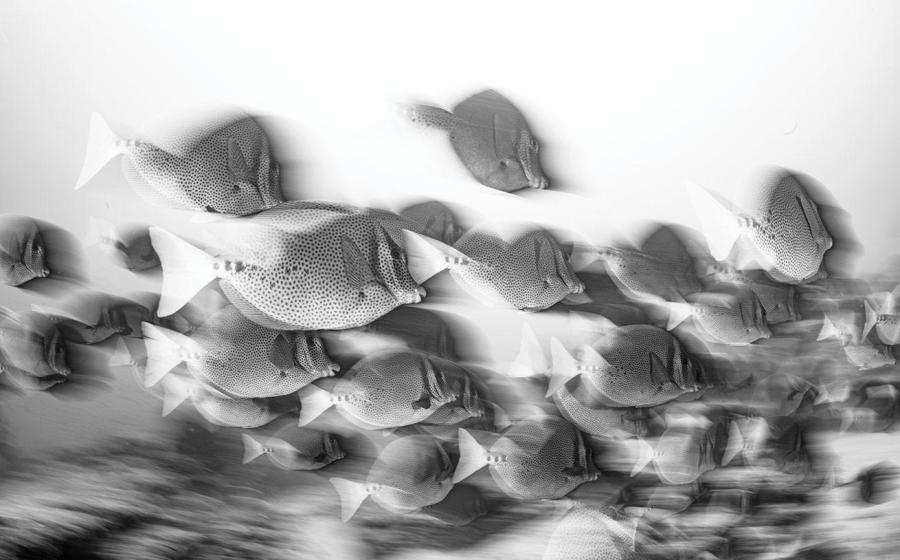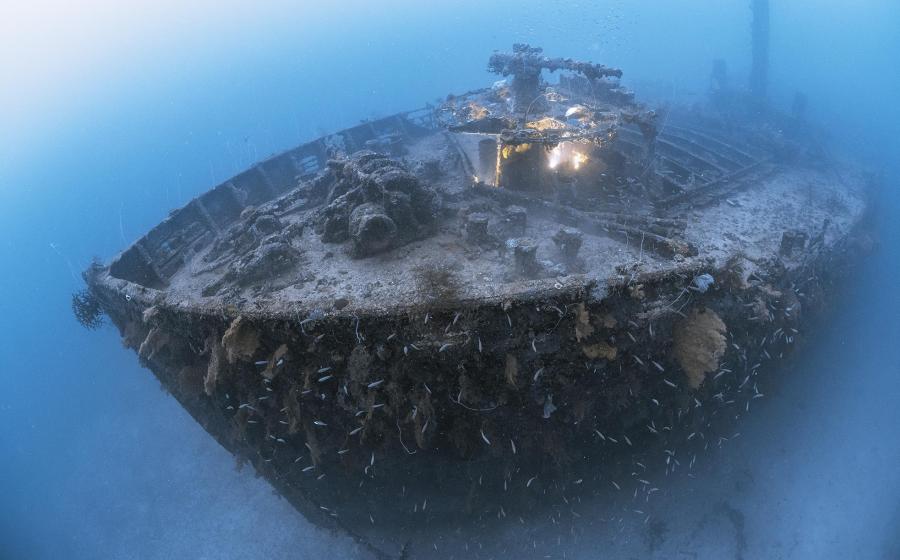The Danger of Freediving in Inclement Weather
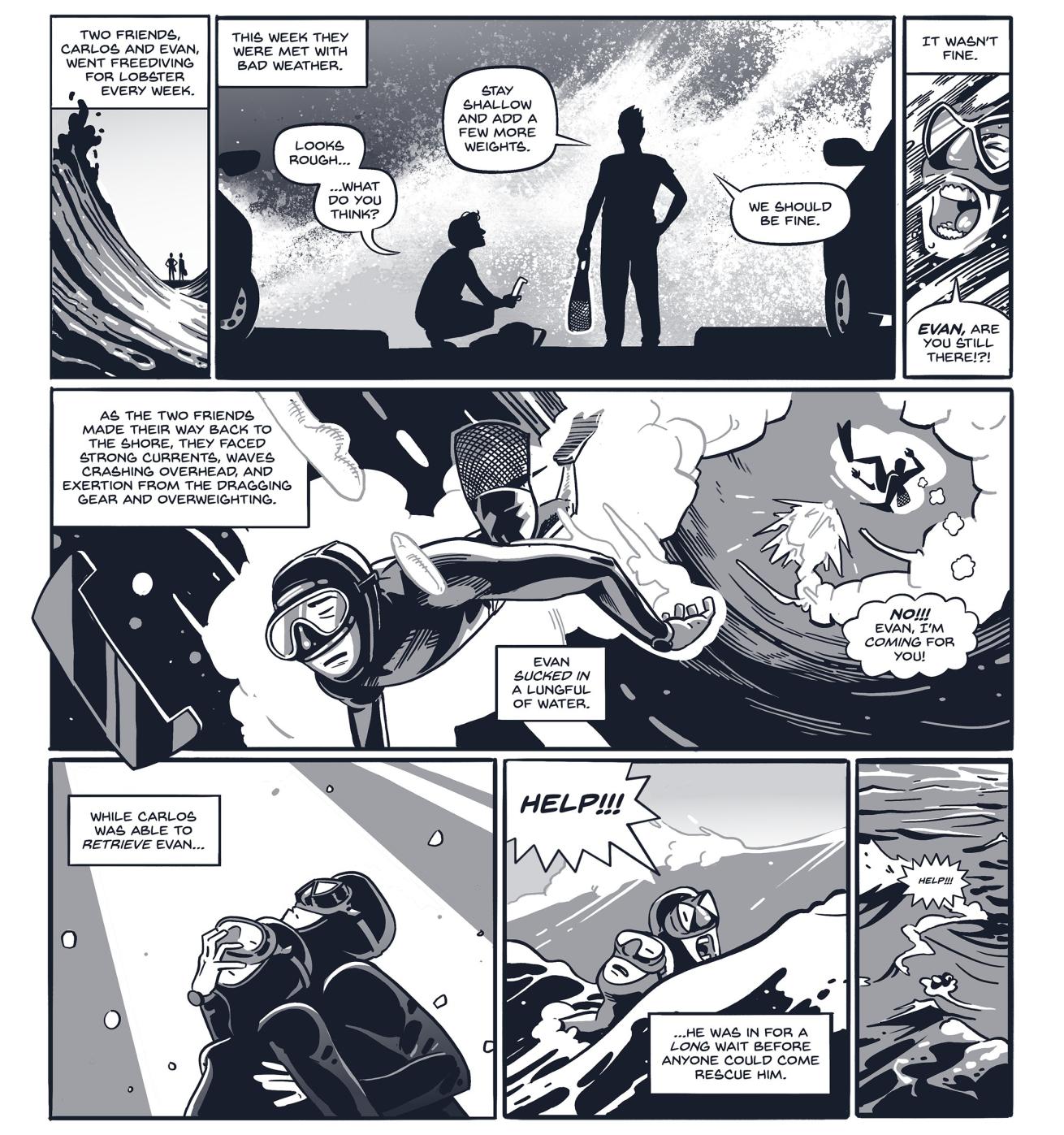
Illustration by Steven P. Hughes
Evan and Carlos loved to freedive for lobster from the shore in their hometown. They were strong divers and familiar with the region, so when a weather advisory was issued for higher than-normal currents and waves, they were not deterred from their favorite weekly activity.
When they pulled into the parking lot, the two friends saw the intense water movement and discussed if they wanted to change their plan based on the weather. Evan suggested they wear a bit more weight to offset the stronger current and help them reach the lobsters 20 feet down. They decided to leave their float and dive flag behind, reasoning that it was just one more thing to carry.
They clipped their game bags with lobster gauges onto their weight belts instead. On their way out, the current cut their swim time in half, but they didn’t think about how it would affect their return swim. At this point, they could have still decided to return to shore immediately before expending extra energy. Instead, they forged on.
Related Reading: Discover Hidden History With the U-352 Distinctive Specialty Course
After diving for half an hour with no luck catching lobsters, Evan realized that he was feeling more tired than he usually did at this point in the day and suggested they return to shore. On their way back, the waves continued to increase in size and intensity, and they were fighting against a strong current. The extra weights they wore to help them descend were making the return even more difficult, and the gear clipped to their weight belts increased their drag in the water.
Swimming in strong current while wearing heavy weights can result in overexertion, even with fins. The lack of an inflatable BCD is another concern when freediving in strong seas.
The waves crashed over Evan’s head and his weights dragged his mouth beneath the surface as he continued struggling toward shore. In a panic, he didn’t think to drop his weights, and his leaden legs could not propel him back to the surface for air. He sucked in a huge lungful of water. Due to the combination of overweighting, adverse conditions, exertion and the shock of inhaling water, Evan was lost beneath the surface.
Carlos saw his friend disappear and immediately dived down to rescue him. Carlos got Evan back to the surface. However, due to the rough weather, he didn’t see any boats close enough to flag down. Carlos didn’t have a float or flag to make them more visible or relieve him from the strain of keeping them both above water.
After 30 minutes of calling for help and trying to keep Evan’s mouth and nose above water, Carlos finally saw a boat approaching and flagged them down—a stroke of sheer luck. If the friends had asked someone to be a spotter for them from shore during their strenuous activity in heavy weather, they could have gotten help for Evan much more quickly.
CPR and hospitalization were unable to reverse the initial damage of inhaled water, and Evan was pronounced a fatal drowning victim. An autopsy revealed that Evan had notable atherosclerotic cardiovascular disease, meaning he had a buildup of plaque in his arterial walls, which likely contributed to his fatigue and ultimate death. When engaging in diving-related activities, it is crucial to know your abilities and level of fitness and to carefully assess how ocean conditions will affect your plans.
Related Reading: How Do I Dive for Lost Items?
Lessons for Life
1. Check local surge, tide and weather reports.
Even highly competent divers can be overcome by Mother Nature. If conditions look rough, save the dive for another day.
2. Wear the proper amount of weight.
When freediving, you should be positively buoyant at the surface. Take a course to fine-tune your weighting, and drop weights in an emergency.
3. Get regular health checkups.
Diving is strenuous. A doctor can advise you on how your health conditions may impact your diving ability.


